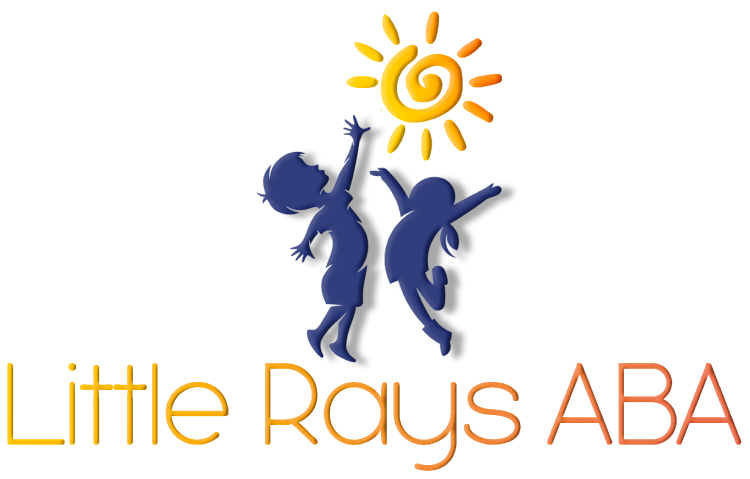This guide shares healthy habits for people with autism spectrum disorder (ASD). It highlights simple ways to improve their quality of life. We will look at the importance of good nutrition, fitting physical activities, and mindfulness techniques. By knowing the special needs of individuals with ASD and using these habits, we can help support their well-being.
Understanding Autism and Its Impact on Health
Autism spectrum disorder (ASD) affects people in many ways. It can change how they feel and their overall health. ASD includes various challenges that often impact social skills, communication, behavior, and how people process sensory information.
The effects of ASD on health go beyond these main areas. They can also affect physical and mental well-being. It is important to understand these aspects. Doing so helps to promote a healthy lifestyle that meets the needs of individuals with autism.
The Basics of Autism Spectrum Disorder (ASD)
Autism Spectrum Disorder (ASD) includes different conditions. These conditions make it hard for people to social skills, talk, and may lead to repetitive actions. People with ASD can be sensitive to certain things and struggle with social interactions. Finding out early if someone has autism is very important. It can make a big difference in the quality of life for those who are autistic. Applied Behavior Analysis (ABA) is a well-known way to help manage the signs of ASD. Knowing the basics of autism spectrum disorder is key to giving support and making a supportive environment for those on the spectrum.
How ASD Affects Physical and Mental Health
Living with ASD can lead to special challenges for physical and mental health. These issues often connect with the main symptoms of the condition. For example, people with ASD may have more anxiety, depression, and trouble sleeping. All these factors affect their mental health and overall well-being.
Additionally, sensory sensitivities that are common in ASD can change food choices and create a limited diet. Picky eating, along with trouble with physical activity because of motor skills or social anxiety, might raise the chance of some health problems.
To tackle these issues, a complete approach is needed. We should encourage physical activity in fun ways. It’s important to support good mental health with therapies too. Working together with healthcare experts to meet specific diet needs can greatly improve the well-being of individuals with ASD.
Nutrition Strategies for Children with Autism
Proper nutrition is very important for the health of children with ASD. It affects their growth, behavior, and overall wellness. Yet, meeting their special dietary needs can be tough because these children often have picky eating habits and sensitivity to certain foods.
To succeed in creating a good nutrition plan, we must think carefully about these sensitivities. We will look at why a balanced diet matters. We will also talk about specific dietary needs for children with ASD. Finally, we will provide helpful tips for making mealtimes easier.
The Importance of a Balanced Diet
Proper nutrition is very important for a healthy life. This is especially true for children with autism, who may have special challenges with food. It is crucial for these kids to get enough nutrients. This helps with their growth, development, and overall health.
Parents of picky eaters with autism face a big challenge. They want to make sure their children get the nutrition they need. Kids with autism may only eat certain textures and tastes. They might limit what they eat.
Here are some ways to help them enjoy a balanced diet:
- Introduce new foods gradually: Avoid giving them too many choices at once.
- Make mealtimes fun: Set a happy and calm eating space.
- Be patient: It might take a few tries for your child to try a new food.
Specific Dietary Considerations for Autism
Addressing sensory issues related to food is essential in creating a positive eating experience for children with ASD. These sensitivities can manifest as aversions to certain textures, colors, or smells, making it challenging to introduce a variety of foods.
Moreover, nutrient deficiencies are a concern for some children with ASD due to their restrictive eating habits. It's essential to pay close attention to their intake of essential vitamins and minerals. Collaborating with a registered dietitian or a nutritionist experienced in pediatric ASD can provide personalized guidance and ensure nutritional adequacy.
Consider these food groups and potential challenges:
| Food Group | Potential Challenges | Strategies |
|---|---|---|
| Fruits and Vegetables | Texture aversions, color sensitivities | Offer in various forms (smoothies, purees, cooked), present with preferred dips |
| Proteins | Limited preferences, sensory overload | Explore different sources (chicken, beans, lentils), offer in small portions |
| Grains | Focus on whole grains, potential for gluten sensitivity | Choose gluten-free options if needed, introduce gradually |
Physical Activities Suitable for Children with Autism
Encouraging kids with ASD to be active has many benefits. It helps their physical health and can also make their motor skills, coordination, and social interaction better.
To find the right activities, we need to know what these kids need and what they like. We will look at the benefits of regular exercise for children with ASD. We will also talk about flexible activities that meet their different needs.
Benefits of Regular Exercise for ASD
Regular exercise provides many benefits for children with ASD. It helps not only with physical health but also with key challenges linked to the condition. In today's world, where many people live more sedentary lifestyles, getting kids active is very important. This is true for children with ASD, who may sit more often.
One big advantage of regular exercise is that it can lower anxiety and lift moods. When kids are active, their bodies release endorphins, which are natural mood lifters. This is very helpful for children with ASD who might feel anxious a lot.
Additionally, adding physical activity to their daily schedule through positive reinforcement can boost their self-esteem and motivation. When kids succeed in different exercises, it gives them a sense of achievement and builds their confidence.
Adaptable Physical Activities for Varied Needs
When picking physical activities for people with ASD, it is key to think about their sensory sensitivities. You should make changes as needed. Activities that have little sensory overload and provide a sense of routine are usually liked.
For young adults with ASD, becoming an adult can bring new challenges, especially in staying active. Getting them involved in group activities with friends who enjoy the same things can be helpful. Also, finding solo activities that match their interests can be beneficial.
Here are some activities that can be changed to fit needs:
- Swimming: The feeling of floating and the rhythm of swimming can help soothe.
- Walking/Jogging: These can be fun alone or with the whole family.
- Yoga: Yoga helps with relaxation, flexibility, and understanding the body.
Incorporating Mindfulness and Relaxation Techniques
Incorporating mindfulness and relaxation techniques into daily life can help people with ASD manage their emotions better. It can also reduce stress and improve overall well-being. These techniques promote self-awareness and offer ways to handle challenges.
Mindfulness means focusing on the present moment without judging it. Relaxation techniques help relieve physical tension and mental stress. When you use both together, they create a strong mix that encourages emotional balance and calmness.
The Role of Mindfulness in Managing ASD Symptoms
Mindfulness practices are becoming well-known for helping individuals with ASD. They can reduce stress and enhance quality of life. By focusing on the present and accepting it, mindfulness gives tools to deal with the difficulties of ASD.
Managing stress is very important for people with ASD. They often have a strong reaction to sensory input and social situations. Using mindfulness techniques, like breathing exercises or body scan meditations, can help manage their responses to stress.
It is important to create a supportive environment for mindfulness. Encouraging short breaks during the day, practicing deep breathing together, or trying guided meditations designed for ASD can make these practices easier and more fun.
Simple Relaxation Techniques for Daily Routine
Integrating simple relaxation techniques into the daily lives of people on the autism spectrum can greatly help them manage stress and sensory overload. These techniques are often easy to learn. They give individuals ways to control their feelings and deal with everyday challenges.
Adding relaxation techniques to a healthy lifestyle makes these benefits even better. For example, progressive muscle relaxation helps individuals tense and release different muscle groups. This can really help with reducing physical tension that many people on the autism spectrum feel.
Another great tool is visual imagery. This lets individuals imagine calming scenes in their minds. It can provide a quick break from stress and help them feel more in control when things get tough.
Conclusion
In conclusion, focusing on healthy habits for autism is very important for overall well-being. Knowing how autism affects health is key. Using good nutrition strategies and taking part in the right physical activities can really boost the quality of life for those with autism. By paying attention to a balanced diet, regular exercise, and relaxation methods, we can meet their physical and mental health needs well. Using these complete approaches helps create a caring environment that supports the well-being of individuals with autism. If you want more advice on these strategies, think about reaching out to our experts for personalized help and suggestions.
At Little Rays ABA, we believe that fostering healthy habits is essential for the holistic well-being of autistic individuals. Our comprehensive approach extends beyond traditional ABA therapy to encompass the development of vital life skills. Our experienced team understands the unique sensory and behavioral needs of children with autism and works diligently to create personalized plans that promote healthy eating, regular exercise, consistent sleep routines, and effective self-care. We believe that by nurturing these habits, we empower individuals to thrive physically and emotionally, creating a foundation for lasting success. Little Rays ABA is committed to guiding your child towards a healthier, happier, and more fulfilling life.
Frequently Asked Questions
What are the best dietary interventions for autism?
For help with diet changes for autism, talk to a nutritionist who knows about ASD. Groups like Autism Speaks provide useful information and can connect families with the Autism Response Team for support. Also, Applied Behavior Analysis (ABA) therapists can give tips to deal with mealtime difficulties.
Unlock Your Child's Potential with Expert ABA Therapy!
At Little Rays ABA, we provide compassionate, evidence-based ABA therapy to help children with autism thrive. Our personalized approach fosters growth in communication, social skills, and independence.
Get In Touch With Us Today to Get Started With ABA Therapy!
Related Posts
MENU
GET IN TOUCH
7117 San Salvador Dr Boca Raton, FL 33433
3200 Collins Ave Miami Beach, FL 33140





